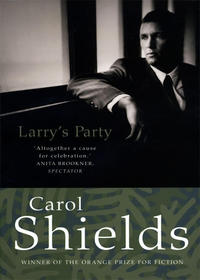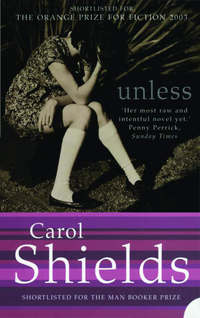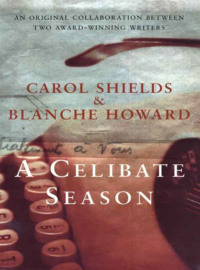
Полная версия
Collected Stories
Somewhere, someday, probably soon, a scholar will write a comparative thesis on pre- and post-World Trade Center literature. I can imagine her (or him), an intrepid young person in her early, awkward twenties (Columbia or else Yale), her hair flattened by neglect, her body unbalanced by bad posture and fad diets, perpetually in a state of flinching, just slightly overawed by her male supervisor (or the other way around), but determined (nevertheless) to identify the fulcrum that she knows, by instinct, separates the now-world, which has seen the end of Fortress America, and the notion of giving thanks from the “olden days”—separates real terrorism from the old excuse of vengeance, striking back when power is denied.
Max, with his shy, proud, leftish politics, would never reduce the ill-timing of September 11 to a career complaint, but I know he has felt the injustice of it. I understand exactly how he could have emended the book’s galleys, given a few weeks’ grace, even a few days’, and, having done so, he would have found himself credited by the literary media with a handsome sense of prophecy and the companionable embrace of now that shades, so subtly, toward the current state of inquietude in America at this moment.
Instead, he and his book Flat Planet have been swept into a cave of unfashionable hush, dismissed and somehow made to feel a triviality. Since Flat Planet (those quarreling family members and their generational rivalries and heroic accumulations of wealth), Max has stayed as far as he can from talking to me about his New Manuscript.
Ever since we were married (1957), since the publication of his early Lincoln Park Beatitudes, Max has always had on hand a New Manuscript. That’s part of what I married at the altar of Euclid Methodist Church in Oak Park. He had never made a secret of the fact that he intended to spend his life writing novels; it was certainly not a thing hidden from the new young wife—me—who had pledged herself to be Max Sexton’s muse, even though we never thought of employing the word muse. He believed in my support, and I believed in his ability to have, always, in the rim of his consciousness, a New Manuscript, the future offering, the work with which he was currently engaged and to which I would always take a second place. What did I pledge in return? Nothing, really, except my presence. My abiding presence, the value of which I have recently come to question.
The new, new, New Manuscript lives at this moment in Max’s orange vinyl briefcase (a souvenir bought in a public market in Paris, which he uses for luck), really a child’s 1960ish backpack, a cartable. The manuscript might comprise three pages or three hundred at this point. I haven’t asked. He takes it with him in the morning when he goes to his office, which is a small, comfortless room over a hardware outlet a mere two blocks away on Rush Street.
It is surprising to me that in a busy urban high-tech city we still need a place to buy screws and nuts, nails and hammers. We continue to require these old-fashioned items, as well as a place where they can be procured. You have to enter the revolving door of our very successful local hardware store, then walk by the rubber-smelling stock of garden tools and housewares, then up a set of stairs, to find Max’s office door, a plain gray-painted metal door that opens with difficulty, scraping hard against the cheap tiled floor. There’s a stubby window (glass bricks, gritted with dirt) high up on one wall. There’s a shared bathroom down the hall; Max formerly had to ask one of the cashiers downstairs for a key, but now he has acquired one of his own.
For my husband, Max, spartanness serves as a set of crossed fingers; he mustn’t give way to greed or a taste for luxury, or it will eat him up the way it ate Bellow and Steinbeck. Probably this explains why the two of us have never owned a car, certainly an eccentricity for our generation.
In the late afternoon, after a day at his word processor, he locks his office door with a sigh—or so I imagine—and totes his briefcase down the stairs, across the street and home, and then the two of us sit down in the living room for coffee.
I use freshly ground beans from the freezer, also beautiful Mexican handmade cups and saucers on a polished wooden tray; we deserve this after all our work, and after, in Max’s case, hours of self-denial in his blank cell. What do we talk about?
He seems—I can only guess at this from the way his face relaxes, his tongue caught in silence—to enjoy an account of my day of sonnet-making, as long as I remember to keep my merry voice, but he offers nothing in return about the contents of his briefcase and how the New Manuscript is progressing.
Our Andersonville apartment in the late afternoon catches the full orange of the western sun. This is the old Swedish immigrant neighborhood, now—who knows why?—a refuge for gays and lesbians. Look at us. We are two oldish, coupled heterosexuals drinking coffee after a day of writing, of transposing our thoughts onto the ephemera of paper. One of us speaks of it, and one of us doesn’t. I can’t be sure of holding his interest when I tell him of my daily progress, but he is always eager to hear about—and amused by—the latest news of our Monday meetings of Sonnet Revival. Today was the day when, after all these years, I handed over the society’s chair to another sonneteer, or sonnet-maker as we prefer to be called nowadays, a man named Victor Glantz. Max knows Victor and despises him, yet he inclined his head when Victor’s name came up, eager for details, and anxious, I could see, to avoid any reference to his own working day.
His side trips to the Newbury, his “research,” assure me the New Manuscript is going slowly—and that means badly. Research is a postponement, as I’ve heard Max say a dozen times. A novel is a whole world; there’s so much to get right, but you don’t get it right from reading encyclopedia articles. Sonnets, on the other hand, are an entirely different matter, those little sounds.
I work on my sonnets at a small keyhole desk in a corner of our blue-and-gray bedroom. I actually work with real paper, lined paper from a thick tablet, and a ballpoint pen, with a great many crossings-out and dozens of arrows and question marks and sometimes such marginal scribblings as “No!” or “saccharine” or “derivative,” or else I present myself with that bold command: “Make fresher?” Freshness is the most demanding task one faces when dealing with a traditional meter, no matter how forgiving that meter is.
The first several pages are a mess, but I like to allow the mess to flow and flower. I make it move, sitting back in my chair, rotating my shoulders every half hour or so; I try to unknot my muscles, go, go, go—as long as it is forward. Forget you are a sixty-seven-year-old woman with a girlish white pageboy. Forget all that business about fourteen lines of rhymed iambic pentameter; think of Leonardo and his sage wisdom: “Art breathes from containment and suffocates from freedom.” Or the problems that accrue from the “weight of too much liberty” (Wordsworth). Drown out the noise of rhyme and rhythm. Think only of the small dramatic argument that’s being brought into being—a handball court, or a courtroom itself, hard, demanding thick stone walls—between perseverance and its asymmetrical smash of opposition. Think of that rectangle, perfect in its proportions, that plastic cutlery tray in your kitchen drawer, with its sharp divisions for forks, knives, spoons. Or think of the shape of a human life, which, like it or not, is limited. I believe that humans are meant to live about a hundred years—after that the cells stop wanting to divide and replicate themselves. Chickens, if left alone, will live for thirty years. I wrote a sonnet once about a chicken in great old age, screeching into its decayed wing feathers. Every species has a probable life span, and this observation offers me a verification of sorts for my fourteen-line creations.
From week to week, the subject of my ongoing sonnet suggests itself. It’s as though there’s a small thread clinging to my sweater’s sleeve, always there, waiting to be picked off. I look up from my desk at the framed poster of Rilke’s “Sonnet to Orpheus no. 14” that’s fixed to the wall, and think: this is me. This is I—getting more grammatical, now—my surroundings being a fine-furred extension of myself. These moments of mental vacancy are mine too, and the smothering way, according to Max, I have of signing my letters with amities and my poems with the turn in point of view at about—more or less—the eighth line. Me, always me. My inescapable self with its slightly off-balanced packaging, benignly decentered by an altered view. When I announce my name, Jane Sexton, to new acquaintances, in circumstances formal or informal, my attempt at musical elusion is also part of me, riding up the “a” in Jane, as though a twinkly uncertainty waited, then plunging down into the plainness of Sexton, with its embedded salute to hard churchly labor—the sexton being only a sort of janitor, and wouldn’t I rather have a name like Bishop or Deacon? No, I would not want to lose my bell-ringing, steeple-climbing, altar-dusting self, unconditioned for awe, broken-tongued on the subject of reverence.
My aging is me too, as well as the subject of my current sonnet. Only two years ago the idea of aging belonged to the whole world. It was background. I hadn’t been touched by it then. Now I am. Because I’m tall and thin, I am conscious of my bones, especially my hips, which are so shallowly buried, and also conscious of their curvature and sharpness. Often I feel like a walking ossuary. Shouldn’t the exercise of staring at my body involve a little veneration? Well, yes. My knuckles have grown elaborate and curious, white and blue knobs in a setting of stringy flesh. I’ve learned to curl my hands in my lap, one inside the other, so that no one can see the wonder of their structure, no one but me.
I am more and more solitary, and so is my poor Max. Are we then starting to take responsibility for our own dying bodies? It seems that each of us will have to do this on our own.
For a long time I have been perfectly happy to chair the twice-monthly meetings of the Sonnet Society, known since 1988 as the Sonnet Revival. Every second Monday, noon to one-thirty. The time is manageable—an hour and a half every other week, and our location in Clark House behind the SUD Building is an easy walk for me. The other members of the society find their parking on the street, which they do happily, since parking rarely presents a problem on Mondays.
Until recently we had the wide, broad-beamed Clark House room on the ground floor to ourselves, our massive oak conference table and the files where we keep our archives, but a year ago the Oulipian Society became aware of our privileged location, and applied for the use of our official meeting room on alternate Mondays, which seemed only fair to me and not a great inconvenience. Several of our members, though, felt our space had been compromised. Those upstarts!
I tried to reason with my colleagues, explaining that there should be no conflict if we planned our calendar carefully. But, in fact, the sharing of the room has caused occasional confusion, since many of our ranks are getting forgetful with age. I made the mistake once myself not too long ago. I can’t imagine how I had mixed up the weeks except that Max and I had been away to Jamaica. In any case I arrived at the Oulipian Society meeting with my latest sonnet and bag lunch to find them in the midst of what they called their “combinatorial stratagems.” On that particular Monday they were doing poems in which every line was to contain two words with double consonants. Their chair, Douglas Pome, asked me to stay for their “workshop” (as an “honored guest,” he said) and I did, feeling a little awkward about being thought a forgetful type who mixes up the weeks, and not so much enjoying the session as thinking it would make a good story to tell Max over coffee, something new for a change—my ever-present itch of compunction.
The Oulipians were younger than our group and more raffish, especially Doug Pome, with his careful midlife beard and his joke of a name. (He does write a nice fleet line.) I noticed they had catered sandwiches instead of doing the brown-bag thing as we’ve done for years. Most of their poems had a kind of tumbling, jesting humor, which they richly enjoyed. Humor is something sonnet-makers do badly, if at all.
I’ve always had a soft spot for the Oulipians. I understand that, at first glance, they might seem to resemble the sonnet revivalists in that they set up constrictive forms for their literary production. But—whether they pursue their experiments and practice under the ever-anxious gaze of consciousness or whether they use anagram or linguistic transplant or number series—they suffer the disadvantage that they can never repeat their forays.
A sonnet, on the other hand, comes with its coat of varnish. As Flaubert says, the words are like hair; they shine with combing. We can do what we want with a sonnet. It is a container ever reusable, ever willing to be refurbished, retouched, regilded and reobjectified.
“Congratulations,” I said to Victor Glantz today as I handed over the gavel and welcomed him to the head of the table, where I always sit. For the next three years he will take charge of the society meetings and newsletter, and after that he may earn himself another term. I presented him with an African violet, which I saw as symbolically useful, though I’m not sure the others understood the subtleties. (African violets must be watered from the bottom, not the top, and this, I believe, is analogous to the writing of sonnets in the twenty-first century.)
“I promise,” he said formally, in his irritating way, “to carry on the mandate of our society and to bring the sonnet into greater and greater public usage.” (I do cherish my association with Sonnet Revival, but I sometimes wish we had fewer loonies among us, and not quite so much enthusiastic mediocrity.)
Because the meeting broke up earlier than usual, and because time is more and more a problem for me, I took a different route home, doubling the distance between Clark House and our apartment building. After all these years I know our Andersonville area well, but the darkening skies, or else the glare of city lights, confused me for a moment. I felt my hands trembling in my pockets. One of the familiar old buildings had been razed; that was what was confusing me, something as simple as that.
Nevertheless I recognized later that I had, in fact, panicked. Fear spread rapidly through my body and went with a rush to my head, so that I thought I might faint. What was the matter with me? I had simply turned right when I should have turned left. There was a coffee shop on the corner. I had seen it many times, but had never entered. Now I went in, sat down at a small table by the window and ordered a cup of hot tea. Here I am, I said to myself two or three times, here I am, here I am, sipping at the edge of the plastic cup. I am five blocks from home, an aging woman who has lost her bearings. But now it’s all right. In fifteen minutes I’ll be home.
I didn’t tell Max about getting lost, but I did tell him what Victor Glantz had said when taking over the meeting, his hopes that the sonnet would gain in public usage. Max laughed at that, laughed harder than I had expected. I gave him a small smile in return. He stopped laughing then and gulped his coffee, struggling to straighten his face. We have to be terribly careful after forty years together. We are both so easily injured.
On Mondays, even on Sonnet Revival days, I try to get one or two lines down. Today I did what I do every day, exactly the same. I start at the beginning, the first line, the first word, and then work my way through to the end, thinking: this is familiar, oh yes. This—if it is to mean anything—must be familiar; familiarity is the point, after all. Spring and counter-spring. April, May, June, July. Then August, then September, straight through the tunnel of the chilly calendar. I am not thinking, in this early stage, of octave-sestet divisions.
Everything I need is within reach—my notes, my dictionary and thesaurus, my Leonardo quote taped to my desk, and, in fact, except for the steady accompaniment of good light, what else am I likely to require as I move from space to space, other than this tough little pad of paper and the stub of my pen?
But there will come a moment, possibly today—I came close early this morning—when my faith in my miniature art collapses. I can count on that; everything will be going well, the words adding themselves up, gorging on themselves, and saluting the friendly gathering of half-rhymes (which is what I favor these days), then the slow sexual stroke of the iamb arrives, and then, for reasons undisclosed to me, I will be stopped in my working tracks, unable to complete more than six lines. For the first week, the sonnet lives underground, where delay and containment are my chief concerns. It is as though I am looking at it with one eye squeezed shut. And then—this can happen quickly—by the second Monday, I have, mostly, managed to set up my scaffolding for all of the fourteen lines, but it is a scaffolding with several bits unnailed, and nothing yet committed. There are pressures working on particular words, but mostly I try to silence what I think of as a foot pedal of a piano, which is ever ready to stomp and shout and take an easy ride home. I want space for strangeness to enter—not obscurities or avoidances, but idiosyncrasies of grammar or lexicon, so that the sound is harsh, even hurtful.
Half a dozen syllables in the third line are being withheld from me, so temptingly, a few feet out of sight, suspended on the other side of the desk lamp. Or else they are unwilling to freeze themselves in the particular posture I have prepared for them. I refuse, possessing as I do a kind of preternatural sprezzatura, and this presents another hurdle, to invert the structure of ordinary spoken English, attaching adjectives to the end of a line for the sake of rhyme. Here’s an example from the literature of sonnets: “With strange new hopes and fears and fancies wild.” “Wild” to rhyme with “smil’d” (Wilmon Brewer, a ferocious old sonnet-writer, whose book, awful, was published in 1937, Sonnets and Sestinas). If I were at the helm, Wilmot Brewer’s line would have to go “With strange new hopes and fears and wild fancies,” and where would you find a rhyme for fancies? In any case, I don’t believe fancies is a word I’ve ever used in a sonnet.
And I want, also, that short introductory beat, the primary iamb, followed by the heavier second beat, and I won’t have it any other way, though many sonnet-makers give in at this early point, as though they are inserting a trumpet into the verse and daring it to blow.
My brain stem is ready, the iambic grasp of knit/purl engaged, and is so close to matching the rhythm of my breath that I don’t even think of it. Its motor hums in the joints of my shoulders and wrists, knit/purl, knit/purl, ten items arranged on each clean glass shelf, though I don’t like to be overly prescriptive when it comes to meter.
Sometimes I look around whatever room I happen to be in as a way of steadying my thoughts. It is seven o’clock now. After our coffee ceremony I moved from the living room to the kitchen, with its fused aroma of afternoon coffee and tonight’s roasting chicken and fresh pepper. My little notepad occupies the clean edge of the corner table, and I have just heard a woman on the radio say to her interviewer, about a local celebrity murderer, “There was something about that man that made the hair on my spine stand up.”
After a minute I pick up a pencil and jot down the word spine. Then spinal. No, spinal is an anapest. I turn the radio off. Color in its array of tints moves forward in my mind, but not the words I need. Spinal fluid. Not quite.
It is my aging body I want to write about, this oiled goatskin I live inside of. The body that rises now, a little creakily, though I attempt to disguise this lack of limberness with an effort of will. I lean over from the waist as smartly as I can (as though a witness were standing next to me taking notes) and check the chicken in the oven and the pair of baking potatoes, darkening in their hides. Max is reading the newspaper. I hear him turning over the pages in the living room and think how he has deprived himself all day of this pleasure. He’s always been strict about the avoidance of the newspaper earlier in the day, he is like a puritan in that way: first he must perform his daily task, getting down onto hard disk or paper his own five hundred words, which tomorrow he may or may not delete. In ten minutes we will sit down at the dinner table, just the two of us. Are we to share the future or no? I’ve never made a fuss of things—why would I begin now?
Oh, these duo dinners! They’ve grown so hard for us. We’ll be talking about the Middle East tonight, the two of us. Or else the obscenity of CEO salaries in America. We already know each other’s views on these subjects; we speak in order to keep the silence away. It’s as though we reheat these issues in our very dear little copper saucepan—so battered and beloved—hoping by accident to stir in something new. But we are inoculated against surprise. We can no longer make each other laugh. We can’t even startle one another. We are both abashed at this imposed duty at the end of every day, even though we’ve done it for years: each of us is obliged to eat a meal in the presence of a stranger, and yet each is determined to be a self, a singular self. Music helps; this is something we’ve both noticed in the last year, and I can hear Max now, rising and shuffling among CDs on the shelf where we keep them. What’s it to be tonight? Ah, Mozart. Good!
After dinner, which includes a single glass of red wine, sipped slowly, grape-sized sips, I will phone our daughter in Oak Park to see how she got through her day, to try to gauge from her voice her level of vitality. I can hear myself being distractingly glib in order to blunt all that I resist. Is she bearing up? Will she manage another day of effort as she tries to see through her life’s obscuring clutter? I have to know before I can tuck myself into our queen-size water bed, where I will read for an hour or more, while Max in another room watches a documentary on television. I am reading a short, bleak Irish novel and he is watching something to do with elephant tusks, needless slaughter and corruption in the international market.
Sleep arrives early, and my arm lifts, as though under hypnosis, to switch off the bedside lamp. My last thought before drifting off collapses into a kind of formula of information directed to the center of my cortex, where a question awaits. What am I now? What is my position in the universe, in the fen and bog of my arrangements?
The reply comes promptly, mocking my tone of high seriousness: if it weren’t for my particular circumstances I would be happy.
Various Miracles
SEVERAL OF THE MIRACLES THAT OCCURRED this year have gone unrecorded.
Example: On the morning of January 3, seven women stood in line at a lingerie sale in Palo Alto, California, and by chance each of these women bore the Christian name Emily.
Example: On February 16 four strangers (three men, one woman) sat quietly reading on the back seat of the number 10 bus in Cincinnati, Ohio; each of them was reading a paperback copy of Smiley’s People.
On March 30 a lathe operator in a Moroccan mountain village dreamed that a lemon fell from a tree into his open mouth, causing him to choke and die. He opened his eyes, overjoyed at being still alive, and embraced his wife, who was snoring steadily by his side. She scarcely stirred, being reluctant to let go of a dream she was dreaming, which was that a lemon tree had taken root in her stomach, sending its pliant new shoots upward into her limbs. Leaves, blossoms and finally fruit fluttered in her every vein until she began to tremble in her sleep with happiness and intoxication. Her husband got up quietly and lit an oil lamp so that he could watch her face. It seemed to him he’d never really looked at her before, and he felt how utterly ignorant he was of the spring that nourished her life. Now she lay sleeping, dreaming, her face radiant. What he saw was a mask of happiness so intense it made him fear for his life.






